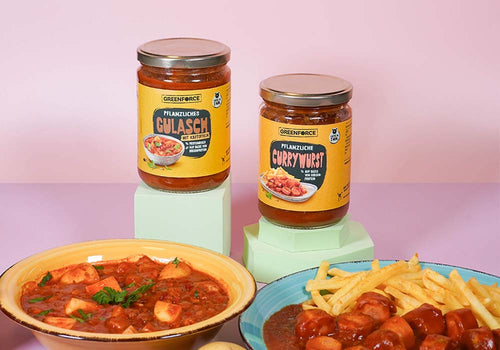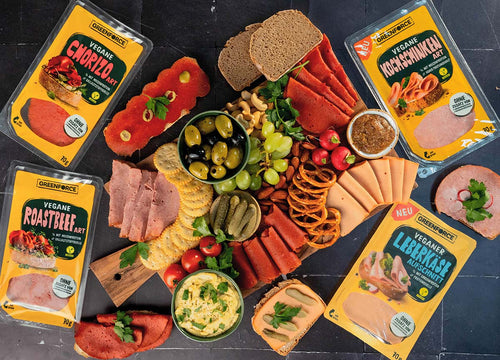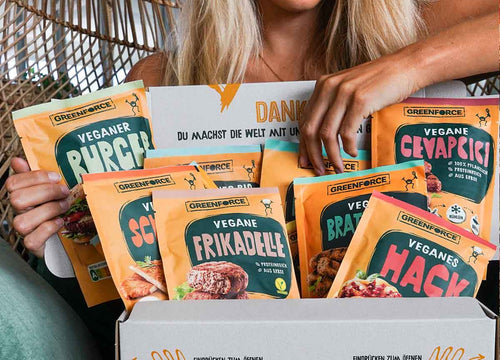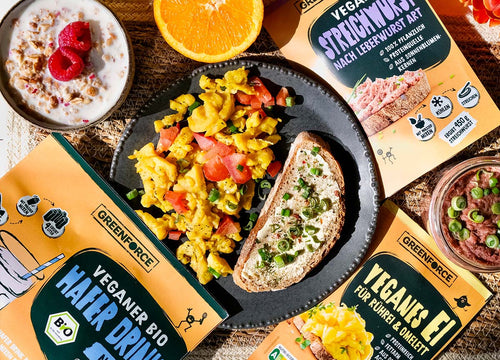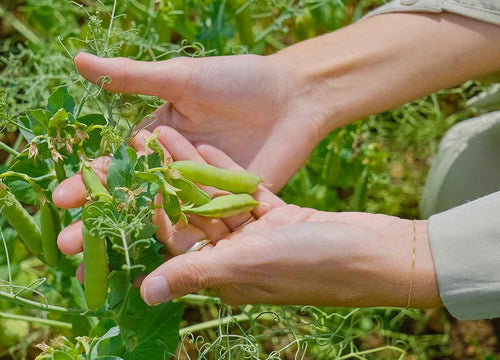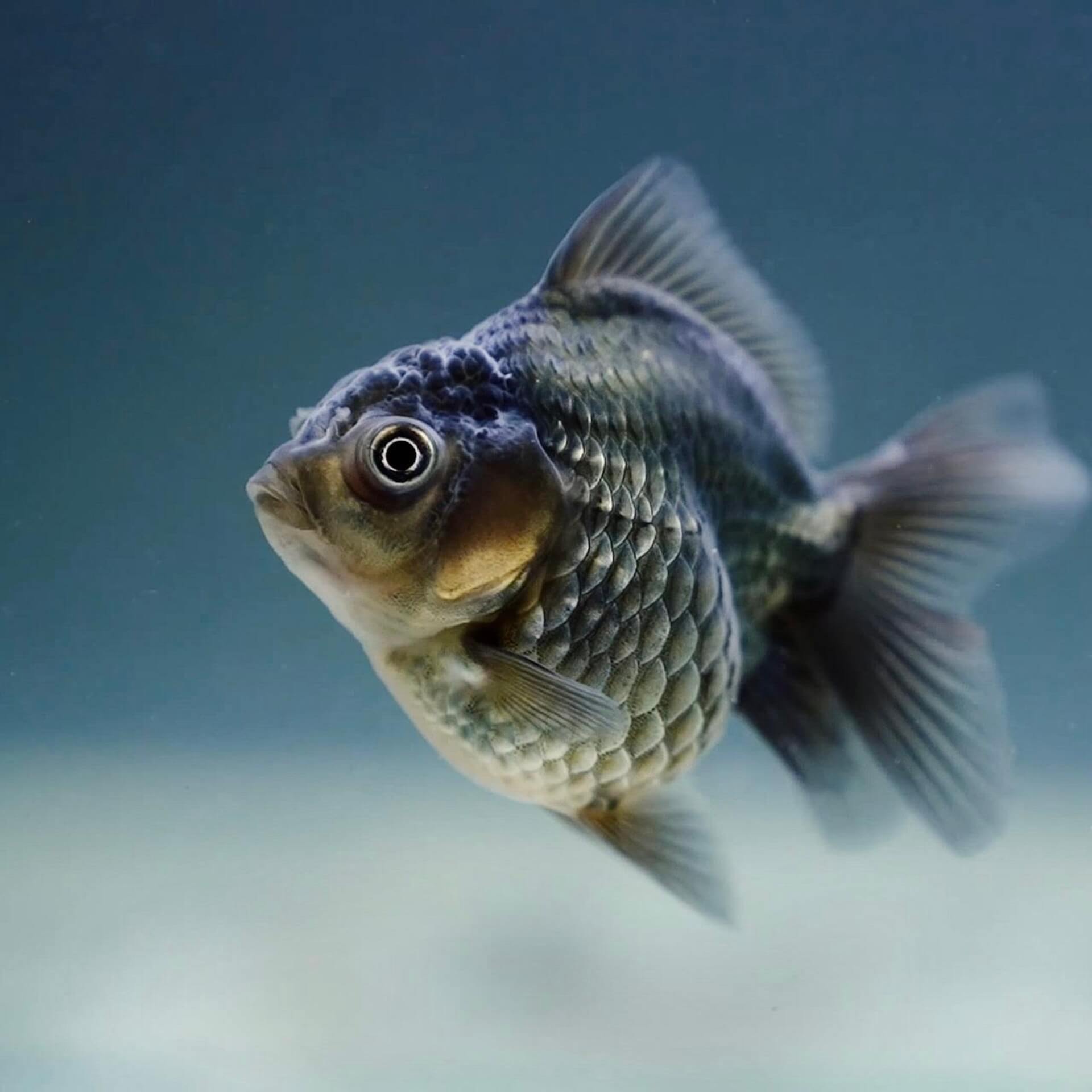More and more people are choosing to eliminate fish from their diet for reasons of animal ethics, environmental protection and sustainability. But there are also people who simply don't like the taste of fish. However, you don't want to miss out on valuable ingredients such as omega-3 fatty acids and vitamin B12.
Vegan fish can be a good alternative in these cases. However, it is advisable to take a closer look. Not every fishing set delivers what it promises.
Why is it advisable to reduce fish consumption?
Billions of fish are caught for human consumption every year. According to a study by the Food and Agriculture Organization of the United Nations (FAO), around 30 percent of all fish species are overfished .
60 percent are exploited to such an extent that they are on the verge of overfishing . Stocks that have not yet been overfished have been steadily declining since 1950. If there is no turnaround, the majority of fish stocks will no longer be able to deliver even ten percent of their previous maximum catches in 2048.
Fishing comes with problems such as environmental degradation and bycatch. Many fishing fleets use destructive fishing methods such as bottom trawling. These drag along the seabed and cause considerable damage to it and the organisms living there.
In addition :
- sea turtles,
- whales,
- dolphins,
- Seals,
- sharks,
- rays,
- seabirds and
- other animals
get caught in the nets, sometimes seriously injure themselves and often die in agony.
Anyone who thinks they can escape the dilemma by eating fish from aquaculture is mistaken. On the one hand, fish farming in a confined space is associated with typical problems of factory farming .
Among other things, exposure to :
- antibiotics,
- chemicals and
- Feces.
On the other hand, farmed predatory fish are often fed wild-caught fish or fishmeal , which further contributes to overfishing.


Why is eating fish even recommended?
Above all, the aquatic animals provide high-quality, easily digestible proteins. On average there are around 20 grams per 100 grams. They also provide us with numerous important nutrients such as :
- Vitamin A,
- Vitamin D,
- Vitamin B12,
- Iodine (sea fish) and
- Omega-3 fatty acids (especially cold water fish).
The long-chain omega-3 fatty acids docosahexaenoic acid (DHA) and eicosapentaenoic acid (EPA) in particular have a positive effect on blood lipids and can reduce the risk of cardiovascular diseases. In addition, recent research indicates that omega-3 fatty acids generally have a beneficial and anti-inflammatory effect on the intestinal flora .
Can plant foods replace fish nutrients?
You can absorb most of the valuable nutrients from fish through plant foods. This is particularly easy for the supply of proteins.
A lot of vegetable protein can be found, for example, in :
- legumes such as peas,
- beans or
- Lenses,
which are also rich in minerals, vitamins and fiber .
Products made from wheat protein or soy can make just as good a contribution to protein supply as mushrooms or protein-rich vegetables such as cabbage.
The absorption of the vitamins, minerals and trace elements contained in fish does not pose any major challenge. The exception : vitamin B12. The supply of this vitamin through oatmeal, nuts and seeds alone is considered critical.
In order to avoid vitamin B12 deficiency symptoms, we recommend taking appropriate dietary supplements . Iodine is found in smaller amounts in vegetables such as spinach, lamb's lettuce or broccoli. Better sources are iodized table salt and seaweed.
However, it is hardly possible to supply yourself with omega-3 fatty acids exclusively through vegetable oils. Your body can only partially convert the alpha-linolenic acid it contains into DHA and EPA. Nevertheless, rapeseed, linseed, walnut and hemp oil play an important role in ensuring an adequate supply when you avoid fish .

What plant-based alternatives to fish are there? 6 tips
If you want to replace real fish with vegan products , you will find a large selection of plant-based alternatives . The spectrum ranges from fish fingers and tuna to sushi and caviar.
Like all processed foods, fish substitute products should not be on your plate every day. However, it can be a good addition for fish lovers who want to follow a vegan diet in the future.

Vegetable tuna
The starting point for vegan tuna is usually pea protein, wheat protein, textured soy protein, tofu or jackfruit. The plant-based substitute resembles real tuna in both appearance, smell, taste and consistency.
You can also make a delicious equivalent for tuna yourself from vegetables. Skinned tomatoes, for example, are ideal because they have a relatively neutral taste and can therefore be spiced up with spices. Soy shreds are also a good basis for vegan tuna .
Algae
With their spicy, salty taste, algae give many dishes a special touch. Whether seaweed, wakame or nori seaweed in salads, soups or rice dishes, real fish is unnecessary. Fish burgers and fish fingers can also be made fish-free .
Algae are a good alternative to fish , and not just in terms of taste. They also contain valuable vitamins, minerals, omega-3 fatty acids and antioxidants. However, due to their high iodine content, it is advisable to avoid excessive consumption.
In particular, pregnant women, seniors and people with weakened immune systems or thyroid disease should consult their doctor about this.
In combination with mushrooms, dried algae can be optimally processed into a plant-based alternative for fish stock. If you are looking for a vegan counterpart to fish sauce, you can make it relatively easily from seaweed, soy sauce and miso paste. Both the fish broth and the fish sauce are a good starting point for Asian soups. You can also use them as marinades.
Vegan sushi
Sushi can easily be made vegan . The Japanese cult fast food has a fish-like taste thanks to its algae coating. Vegetables such as cucumber, peppers and avocado, as well as tuna made from tomatoes or salmon substitutes made from carrots, are suitable for the filling. Discover our delicious recipe here.
Fish fingers made from plants
The popular childhood classic is now also available in vegan version . It usually consists of seitan or tofu, as these ingredients are very close to real fish in terms of texture and consistency.
But there are also variants with vegetables. Of course, you can also make it yourself : simply take natural tofu, cut it into strips and place it in vegetable fish broth or seaweed marinade. This gives it a fishy note. Then add a crispy breading around it and the fish-free fish sticks are ready.
Herring salad without herring
Herring salad is one of the best-known and most popular fish salads . Hard to imagine, but you can also make it completely fish-free .
With :
- beetroot,
- an apple,
- fried eggplant,
- Gherkins,
- Algae for the fish taste and
- vegan yogurt
It is quick and easy to prepare and tastes good on its own, as a topping on bread or with warm potatoes.
Vegetable caviar
Ordinary caviar is fish eggs, which are of course anything but vegan . However, you can make a tasty alternative with seaweed. Like the animal original, this is suitable for decorating dishes and as a highlight for festive buffets.
Vegan caviar is also an interesting option for catering establishments, as it costs significantly less than its animal counterpart.


What should you pay attention to when buying vegan fish substitute products?
Vegan fish alternatives imitate fish and fish products in terms of their shape, consistency and taste, but do not always provide their nutrients. Many products contain less protein , which is also of poorer quality.
In addition, vegan fish substitute products are often highly processed and contain ingredients that make them less valuable for a balanced diet . A look at the contents and the nutritional table on the packaging quickly reveals weaknesses in this regard. If omega-3 fatty acids and vitamin B12 are listed there, you can access them.
The fewer additives, the better
To generate the typical fish taste , many manufacturers use algae extracts. However, there are also products that only use purely synthetic flavors produced chemically in the laboratory. Gelling and thickening agents are often used so that the fish alternatives have the consistency of real fish .
These are held together well as filling material in plant-based fish sticks. The best vegan substitute products are usually those with the fewest additives .
Conclusion: vegan fish
Vegan fish is ideal for replacing animal-based meals and adding variety to your plate. Greenforce replacement products are 100 percent vegan and contain no unnecessary additives .
If you avoid fish completely, it is essential to supply your body with missing nutrients such as vitamin B12 and the long-chain omega-3 fatty acids EPA and DHA.

